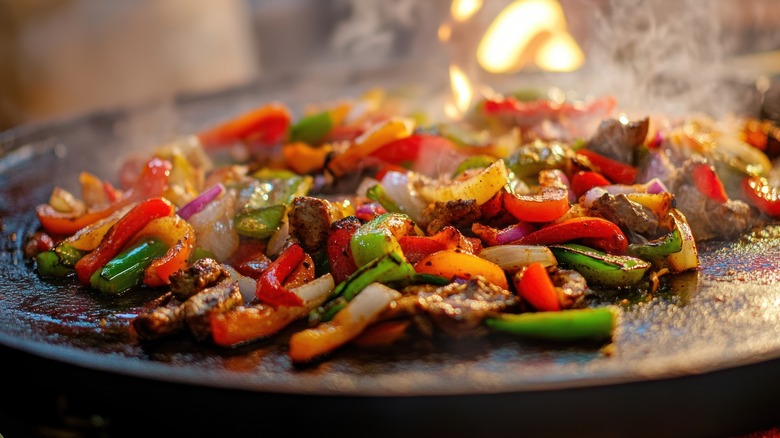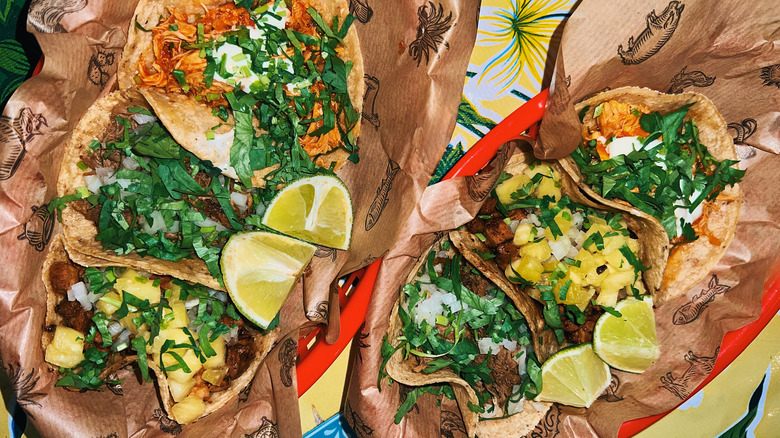Where Were Fajitas Actually Invented?
If you grew up in the American Southwest, you probably have memories of sitting in a Tex-Mex joint with your family. Free chips and salsa, cheap Corona and Modelo, ridiculous birthday songs, and, of course, the sizzle and smell of fajitas. Even if you can't see the smoke from the hot cast iron pan served at the table next to you, you can hear and smell this delicious dish a mile away. It may come as some surprise, then, that fajitas are not "authentic" to Mexican cuisine. It's a Tex-Mex dish through and through, meaning their origins lay in the interaction between Texan ranchers and Mexican cowboys (vaqueros).
Vaqueros working the ranches of Southwest Texas in the 1930s needed to eat while they worked, so ranchers would offer skirt steaks to the workers, not least because it was the cheapest cut of beef. The steak was often flavored by leftover fat and cooked directly over mesquite coals. You could find workers tenderizing the meat beforehand by beating it across rocks before leaving them in lime juice all day. This humble, workday meal slowly became the American darling it is today, truly taking off in the 1970s when it became a menu item on several restaurants throughout Texas, particularly Houston. The popularity of fajitas grew from there thanks to their customizability, cheap ingredients, and the showy sizzle it makes when it's served.
Americans make too big a deal out of authentic foods
This Tex-Mex staple might not be "authentic" Mexican cuisine, but that shouldn't stop anyone from truly loving fajitas as much as Sabrina Carpenter. There's no shortage of Reddit threads asking about the best authentic Mexican restaurants or the best authentic Mexican recipes. We can understand this impulse since authentic food is a good way to come to know other cultures, but it can quickly become a purity test that otherwise great dishes and restaurants fail to pass.
It shouldn't be considered a negative if a Mexican restaurant in the United States serves fajitas. The dish has become part of the American palate and stands as a testament to the common history shared between two distinct cultures. To me, it would be weird for a Mexican joint in the United States to not serve fajitas.
There are a number of think pieces in various food magazines which are apt to point out the drawbacks of 'authentic' cuisine. There's a strong argument to be made that great food supersedes authenticity, and fajitas are a near-perfect encapsulation of how food cultures inevitably shift and respond to their environments. In some sense, all food is authentic food. If you get to enjoy the wonderful cultural hybrid that is fajitas, all the better.

